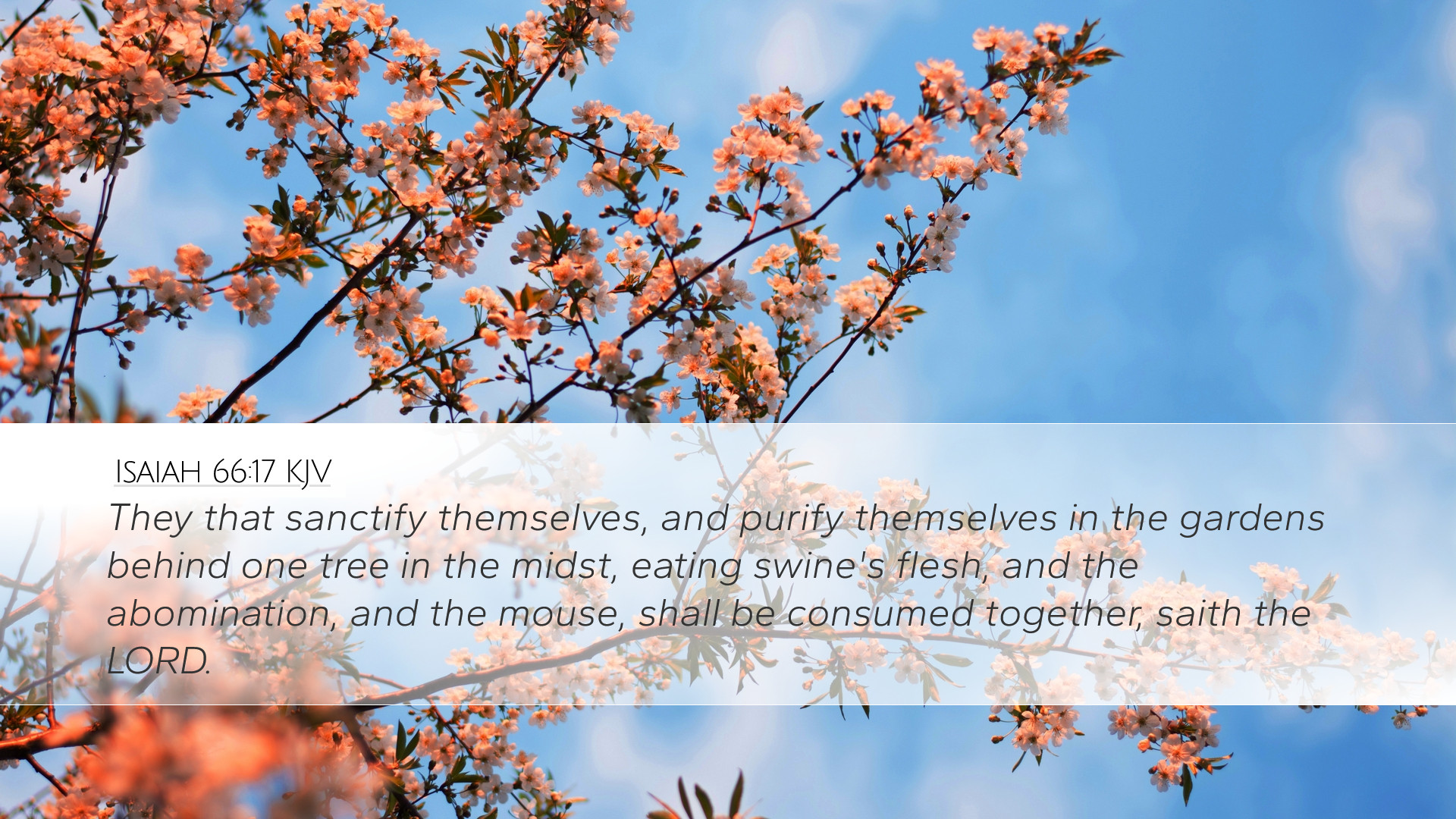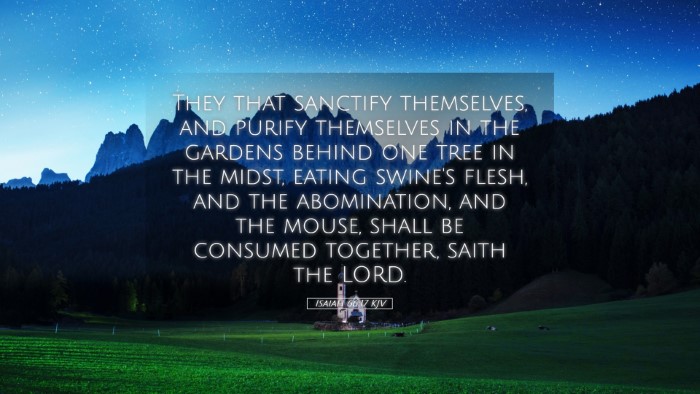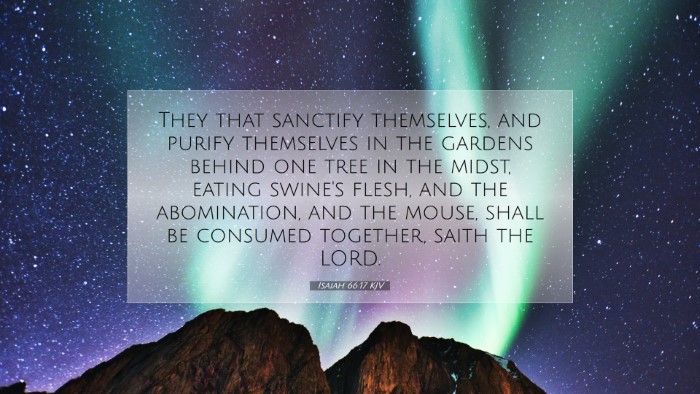Bible Commentary on Isaiah 66:17
Isaiah 66:17 states, "Those who sanctify and purify themselves to go into the gardens, following one in the midst, eating pig's flesh, and the abomination and mice, shall come to an end together,". This verse encapsulates a powerful warning against false worship and the serious implications of defilement in a spiritual sense.
Contextual Overview
The chapter concludes the Book of Isaiah with a series of prophetic declarations. Here, we see a contrast between true worshippers of the Lord and those who partake in abominable practices. The previous verses lay the groundwork for an understanding of God's judgment and the nature of His people during the time of restoration.
Commentary Insights
Matthew Henry's Commentary
According to Matthew Henry, this verse reflects the attitudes of those who engage in false religious practices while thinking they are sanctifying themselves. He emphasizes the following points:
- False Worship: The reference to "eating pig's flesh" and participating in rituals in "gardens" symbolizes the blending of paganism with the worship of the true God. This is an abomination to the Lord and indicates a heart that is not fully dedicated to Him.
- Judgment: Henry highlights that such practices will not go unpunished. The promise of an end for these individuals serves as a warning that one cannot approach God while simultaneously indulging in defilement.
- Separation of the Righteous: Verses that follow Isaiah 66:17 reassure the faithful that God will gather His people and bring about justice, distinguishing them from the unrighteous.
Albert Barnes' Commentary
Albert Barnes provides a detailed analysis of the cultural and historical context surrounding this verse:
- Symbolic Actions: Barnes notes that the act of sanctifying and purifying oneself to go into gardens illustrates the rituals of the time. Gardens can signify sacred spaces; however, they were also places of Gentile worship, demonstrating a mixture of sacred and profane.
- Defilement: The mention of "pig's flesh" symbolizes purity standards given in the Mosaic Law. To willingly partake in this is to reject God's commandments and embrace a corrupt system.
- Ultimate Fate: Barnes reminds us that the fate awaiting the individuals described in this verse is dire, suggesting that their practices lead not only to personal destruction but also to the broader implications of leading others away from God.
Adam Clarke's Commentary
Adam Clarke offers a theological reflection on the implications of this verse:
- Spiritual Deception: Clarke stresses that the act of self-sanctification, in this context, is a stark irony. Those who think they are ‘holy’ in their own eyes negate God’s standards, indulging in practices that are detestable.
- Call to Genuine Holiness: Clarke points to the necessity for an authentic relationship with God. True holiness involves adhering to the commandments of God and honoring His statutes, not simply external actions.
- Prophetic Warning: He interprets this verse as a prophetic warning not just for Israel but for all generations, emphasizing the peril of mixing worldly practices with sacred observance.
Theological Reflections
This verse sheds light on foundational theological concepts:
- Holiness of God: The absolute purity of God demands a holy response from His people. The consumption of unclean food symbolizes a contempt for the holiness of God.
- Consequences of Sin: The surety of judgment is a crucial aspect of God's justice. This verse encapsulates the idea that those who persist in sin and falsehood will ultimately face divine retribution.
- Redemption and Restoration: The broader narrative of Isaiah indicates that amidst judgment, there is hope for redemption and restoration for a remnant that remains faithful.
Application for Today
For pastors, students, theologians, and Bible scholars, the reflections from Isaiah 66:17 can lead to several contemporary applications:
- Evaluate Worship Practices: It is essential to examine if worship practices align with biblical principles, avoiding the pitfall of blending secular culture with sacred beliefs.
- Cultivate Genuine Holiness: True holiness entails an inward transformation that manifests outwardly. Believers should strive to embody the teachings of Christ and live according to His commandments.
- Understand God’s Justice: A deeper awareness of God’s nature as both loving and just encourages believers to live in reverence and accountability before Him.


